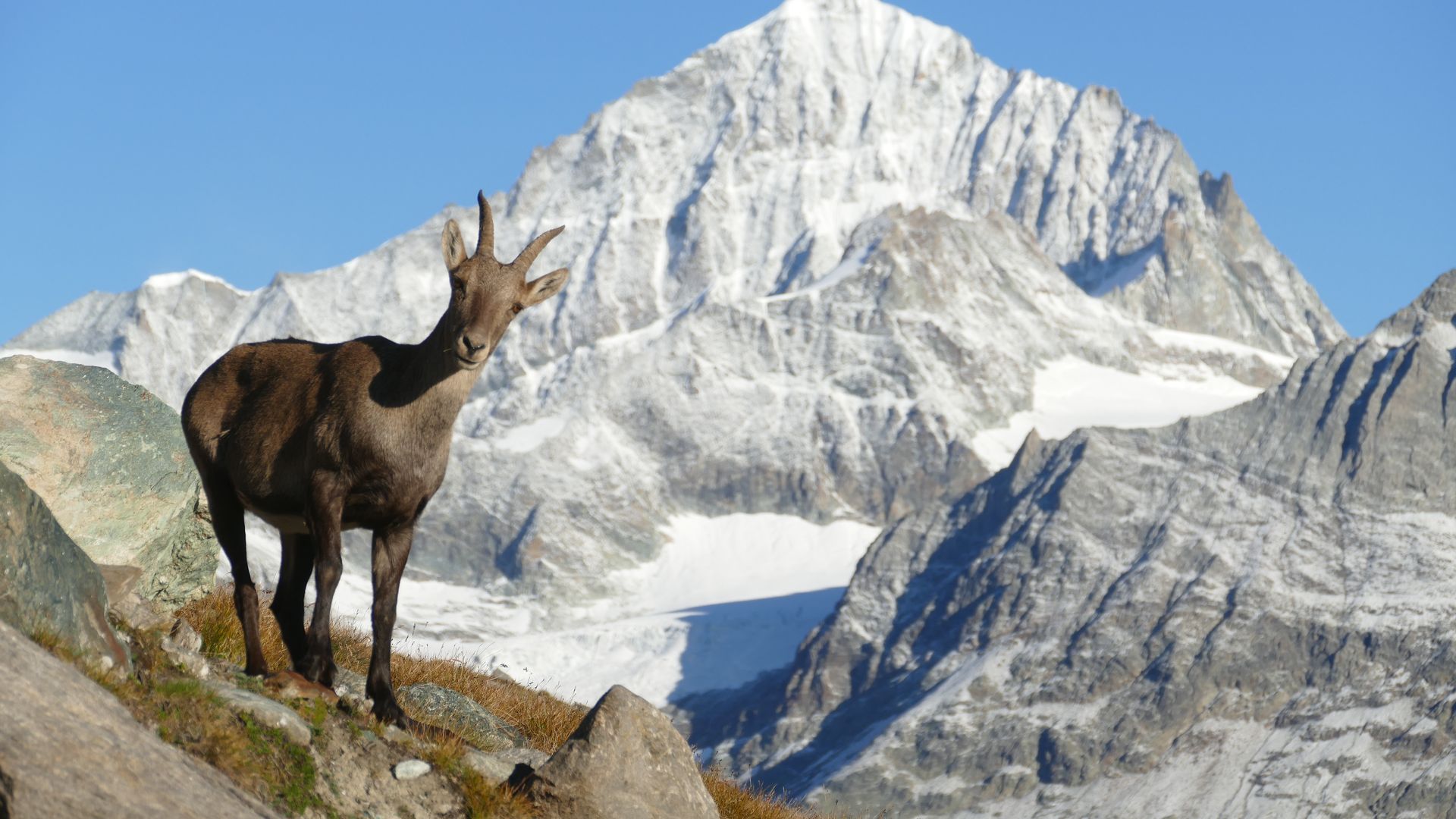Salt lick stone on the Gornergrat
Salt as a source of life – why ibexes need salt
Have you ever wondered why ibexes seemingly indiscriminately lick rocks or soil? You will be able to observe this fascinating behaviour here on the Gornergrat. But there is a vital instinct behind this: ibexes need salt to stay healthy and survive in the Alpine wilderness.
Why is salt so important?
Salt is not just an indispensable mineral for humans – ibexes also depend on salt to stay healthy. It helps them:
regulate their water balance – an important function for survival in dry altitudes,
control muscles and nerves – without salt ibexes could not climb, move or run away,
strengthen bones and antlers – it contains important minerals such as calcium and phosphorus.
This is how ibexes find salt.
It is difficult to find a natural supply of salt. Ibexes have therefore developed special strategies:
They deliberately seek out natural salt spots, often over long distances.
They lick mineral-rich rocks and soils.
They absorb salt through special plants.
Game rangers set up salt lick stones, such as the one here on the Gornergrat – a valuable help for the animals.
When can you see ibexes on the Gornergrat?
Summer: especially in the early morning and evening hours.
Winter: they will then need less salt, but visit the site occasionally.
→ Tip: look out for the bucks with their imposing horns!
Take a close look – but with respect!
Ibexes are wild animals. Please keep your distance and do not interfere with their natural behaviour.
Code of Conduct: respect wild animals
The Alps belong to them too – our respectful treatment of wild animals
The Alps are not just a spectacular excursion destination for us humans – they are primarily home to many wild animals. But our behaviour can throw their world off balance. Here you can find out how you can help protect nature and its inhabitants.
Why is our behaviour so important?
Wild animals have fixed habitats, feeding grounds and trails. Any disturbance can cause them to:
flee and lose energy unnecessarily – this can be life-threatening, especially in winter,
leave young animals behind – when they feel threatened, parents will leave fawns and kids behind,
avoid their habitat – more and more human interference is displacing wild animals.
The four most important rules for respectful interaction:
Keep your distance from the animals!
Wild animals are not pet animals. Observe them with binoculars or a camera, but without harassing them.
No food!
You may mean well, but human food harms wildlife and changes their natural behaviour.
Stay on the marked paths!
Shortcuts destroy sensitive natural zones, and off the beaten track you can unknowingly disturb wildlife.
Respect wildlife quiet zones!
They are important for the survival of many animal species – especially in winter and during the breeding season.
Responsible wildlife watching
If you behave respectfully, you have a better chance of seeing wild animals in their natural surroundings. Let them move freely and you will be able to experience unforgettable moments!
